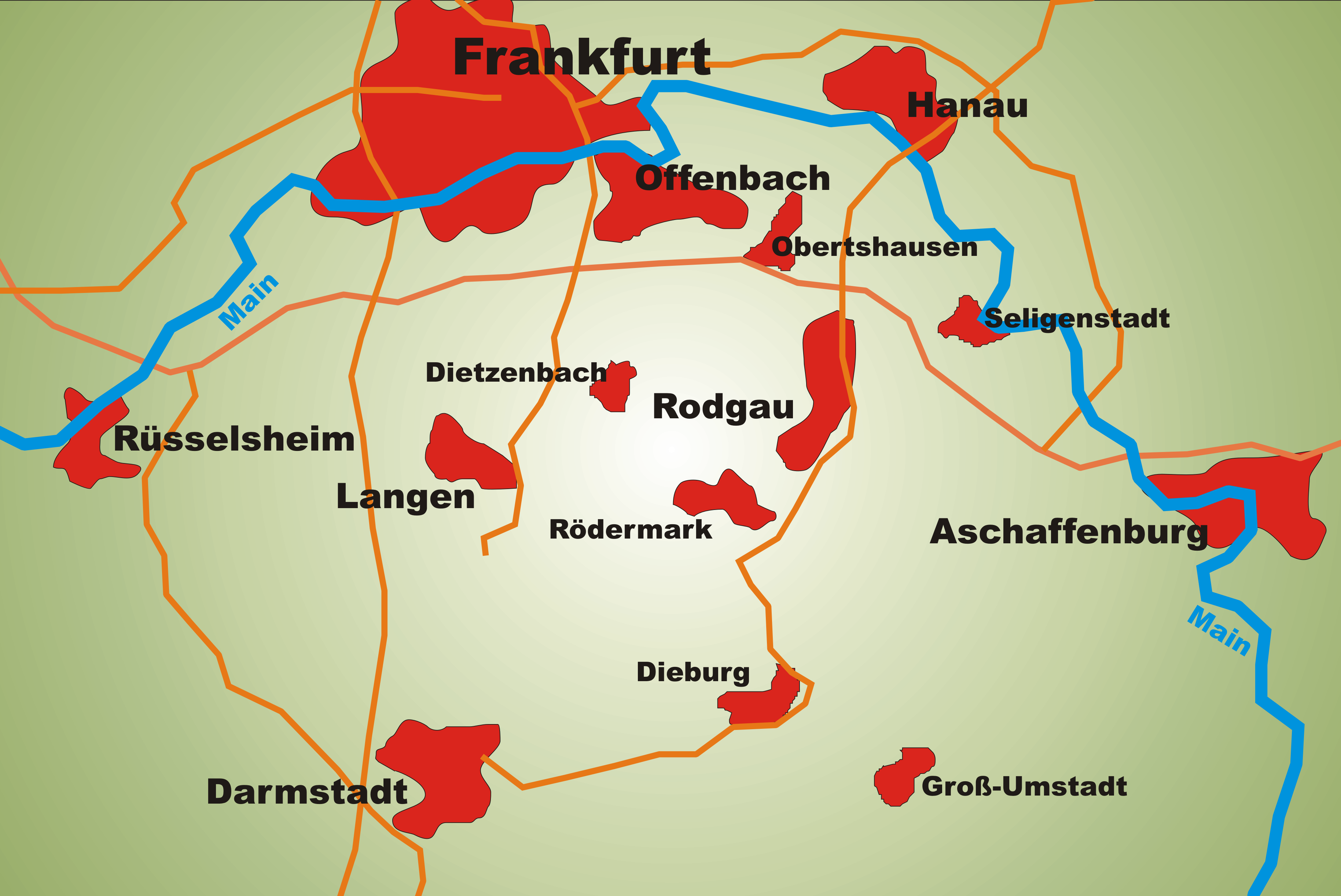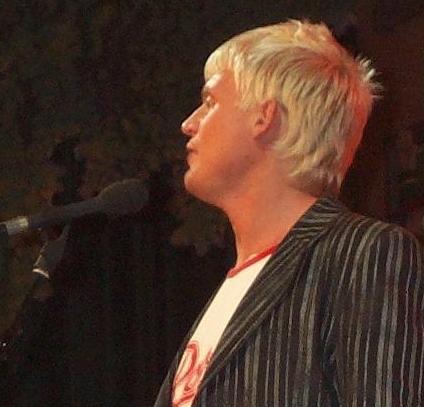|
Badesalz
Badesalz (literally "bath salt") is a comedy duo from the German state of Hesse, founded in 1982 by Hendrik "Henni" Nachtsheim (* 15 March 1957 in Wuppertal, (Germany)) and Gerd Knebel as "Badesalz Theater." They speak in Hessian dialect during their performances and sketches. Nachtsheim was the saxophonist of the rock band Rodgau Monotones, Knebel a singer at Flatsch. They had several shows on German TV ('Och Joh' ( ARD), Comedy-Stories (Sat.1), 'Badesalz' Comedy Central). Their work includes numerous albums, several films, and a book. Discography * 1990 – Och Joh * 1991 – Nicht ohne meinen Pappa (DE: #70) * 1993 – Diwodaso (DE: #15) * 1994 – Alles Gute von Badesalz – BEST OF (DE: # 31) * 1995 – Zarte Metzger (DE: #9) * 1997 – Wie Mutter und Tochter (DE: #4) * 1999 – Voodoobabbbel (DE: #16) * 2000 – Dabrauchemergarnetdrübberredde – BEST OF (DE: # 96) * 2002 – Du packst es, Jutta! (DE: #16) * 2004 – Das Baby mit dem Goldzahn * 2014 – Alleswassesaufce ... [...More Info...] [...Related Items...] OR: [Wikipedia] [Google] [Baidu] |
Abbuzze! Der Badesalz-Film
''Abbuzze! Der Badesalz-Film'' is a German film starring the comedy duo Badesalz, directed by Roland Willaert. It was released in 1996. Reception The film was the sixth most popular German film for the year with admissions of 716,839. References External links * 1996 films 1996 comedy films German comedy films 1990s German-language films 1990s German films {{1990s-Germany-film-stub ... [...More Info...] [...Related Items...] OR: [Wikipedia] [Google] [Baidu] |
Hesse
Hesse (, , ) or Hessia (, ; german: Hessen ), officially the State of Hessen (german: links=no, Land Hessen), is a States of Germany, state in Germany. Its capital city is Wiesbaden, and the largest urban area is Frankfurt. Two other major historic cities are Darmstadt and Kassel. With an area of 21,114.73 square kilometers and a population of just over six million, it ranks seventh and fifth, respectively, among the sixteen German states. Frankfurt Rhine-Main, Germany's second-largest metropolitan area (after Rhine-Ruhr), is mainly located in Hesse. As a cultural region, Hesse also includes the area known as Rhenish Hesse (Rheinhessen) in the neighbouring state of Rhineland-Palatinate. Name The German name '':wikt:Hessen#German, Hessen'', like the names of other German regions (''Schwaben'' "Swabia", ''Franken'' "Franconia", ''Bayern'' "Bavaria", ''Sachsen'' "Saxony"), derives from the dative plural form of the name of the inhabitants or German tribes, eponymous tribe, the Hes ... [...More Info...] [...Related Items...] OR: [Wikipedia] [Google] [Baidu] |
Wuppertal
Wuppertal (; "''Wupper Dale''") is, with a population of approximately 355,000, the seventh-largest city in North Rhine-Westphalia as well as the 17th-largest city of Germany. It was founded in 1929 by the merger of the cities and towns of Elberfeld, Barmen, Ronsdorf, Cronenberg and Vohwinkel, and was initially "Barmen-Elberfeld" before adopting its present name in 1930. It is regarded as the capital and largest city of the Bergisches Land (historically this was Düsseldorf). The city straddles the densely populated banks of the River Wupper, a tributary of the Rhine called ''Wipper'' in its upper course. Wuppertal is located between the Ruhr (Essen) to the north, Düsseldorf to the west, and Cologne to the southwest, and over time has grown together with Solingen, Remscheid and Hagen. The stretching of the city in a long band along the narrow Wupper Valley leads to a spatial impression of Wuppertal being larger than it actually is. The city is known for its steep ... [...More Info...] [...Related Items...] OR: [Wikipedia] [Google] [Baidu] |
Hessian Dialects
Hessian (german: Hessisch) is a West Central German group of dialects of the German language in the central German state of Hesse. The dialect most similar to Hessian is Palatinate German (german: Pfälzisch, links=no) of the Rhine Franconian sub-family. However, the Hessian dialects have some features which set them somewhat apart from other West-Central German dialects. Dialects Hessian can be divided into four main dialects: * North Hessian (, around the city of Kassel), * Central Hessian (, including the Marburg and Gießen areas), * East Hessian (, around Fulda), * South Hessian (, around Darmstadt). To understand this division, one must consider the history of Hesse and the fact that this state is the result of an administrative reform. ''s'' regularly occurred in the pronouns and , unlike in Central Franconian to the west, which has and . *West Germanic initial ''p'' and medial/final ''pp'' have remained plosives ( 'pound', 'apple'), contrasting to the east with Ea ... [...More Info...] [...Related Items...] OR: [Wikipedia] [Google] [Baidu] |
Rodgau Monotones
Rodgau is a town in the Offenbach district in the ''Regierungsbezirk'' of Darmstadt in Hesse, Germany. It lies southeast of Frankfurt am Main in the Frankfurt Rhine Main Region and has the greatest population of any municipality in the Offenbach district. It came into being in 1979 when the greater community of Rodgau was raised to town, after having been formed through a merger of five formerly self-administering communities in the framework of municipal reform in Hesse in 1977. The current constituent communities’ history reaches back to the 8th century. Geography Location Rodgau is part of the metropolitan area known as the Rhein-Main-Gebiet in German, one of Germany's economically strongest areas. The fiftieth parallel of north latitude (50°N) passes right through Puiseaux-Platz (square) in Nieder-Roden. The town lies on the so-called ''Untermainebene'', or Lower Main Plain, the northern outlying part of the Rhine rift. The flat land around Rodgau is set against hil ... [...More Info...] [...Related Items...] OR: [Wikipedia] [Google] [Baidu] |
ARD (broadcaster)
ARD is a joint organisation of Germany's regional public-service broadcasters. It was founded in 1950 in West Germany to represent the common interests of the new, decentralised, post-war broadcasting services – in particular the introduction of a joint television network. The ARD has a budget of €6.9 billion, 22,612 employees and is the largest public broadcaster network in the world. The budget comes primarily from a licence fee which every household, company and public institution are required by law to pay. For an ordinary household the fee is currently €18.36 per month. Households living on welfare are exempt from the fee. The fees are not collected directly by the ARD, but by the Beitragsservice (formerly known as Gebühreneinzugszentrale GEZ), a common organisation of the ARD member broadcasters, the second public TV broadcaster ZDF, and Deutschlandradio. ARD maintains and operates a national television network, called '' Das Erste'' ("The First") to differentiate ... [...More Info...] [...Related Items...] OR: [Wikipedia] [Google] [Baidu] |
Comedy Central
Comedy Central is an American basic cable channel owned by Paramount Global through its network division's MTV Entertainment Group unit, based in Manhattan. The channel is geared towards young adults aged 18–34 and carries comedy programming in the form of both original, licensed, and syndicated series, stand-up comedy specials, and feature films. It is available to approximately 86.723 million households in the United States as of September 2018. Since the early 2000s, Comedy Central has expanded globally with localized channels in Europe (including the UK), India, Southeast Asia, Latin America, Australia and New Zealand, Middle East, and Africa. The international channels are operated by Paramount International Networks. History 1989–1991: Pre-launch as The Comedy Channel On November 15, 1989, Time-Life, the owners of HBO, launched The Comedy Channel as the first cable channel devoted exclusively to comedy-based programming. On April 1, 1990, Viacom (who o ... [...More Info...] [...Related Items...] OR: [Wikipedia] [Google] [Baidu] |
German Television Comedy
Germany has a long tradition of television comedy stretching as far back as the 1950s, and with its origins in cabaret and radio. 1960s *1963: ''Der 90. Geburtstag'' (''Dinner for One'') is a comedy sketch recorded on 8 July 1963 at ''Theater am Besenbinderhof'' in front of a real audience by Norddeutscher Rundfunk (NDR). Although it is actually performed in English, it is considered a cult television classic in Germany and it is still an integral component of the New Year's Eve schedule at several German television stations. 1970s When Otto's first show came out in 1973, it differed in many ways from those of traditional comedians also around at the time, such as Rudi Carrell (then aged 39) and Loriot (then 50). Rudi Carrell and Loriot dressed rather more formally in a suit and tie, and stood on a large stage with the audience seated in rows, whereas Otto, then only 25, with his long blond hair falling in his face, wore T-shirts and jeans, and sat on a smaller cabaret-style st ... [...More Info...] [...Related Items...] OR: [Wikipedia] [Google] [Baidu] |
German Comedy Duos
German(s) may refer to: * Germany (of or related to) **Germania (historical use) * Germans, citizens of Germany, people of German ancestry, or native speakers of the German language ** For citizens of Germany, see also German nationality law **Germanic peoples (Roman times) * German language **any of the Germanic languages * German cuisine, traditional foods of Germany People * German (given name) * German (surname) * Germán, a Spanish name Places * German (parish), Isle of Man * German, Albania, or Gërmej * German, Bulgaria * German, Iran * German, North Macedonia * German, New York, U.S. * Agios Germanos, Greece Other uses * German (mythology), a South Slavic mythological being * Germans (band), a Canadian rock band * "German" (song), a 2019 song by No Money Enterprise * ''The German'', a 2008 short film * "The Germans", an episode of ''Fawlty Towers'' * ''The German'', a nickname for Congolese rebel André Kisase Ngandu See also * Germanic (other) * German ... [...More Info...] [...Related Items...] OR: [Wikipedia] [Google] [Baidu] |
Male Characters In Theatre
Male (symbol: ♂) is the sex of an organism that produces the gamete (sex cell) known as sperm, which fuses with the larger female gamete, or ovum, in the process of fertilization. A male organism cannot reproduce sexually without access to at least one ovum from a female, but some organisms can reproduce both sexually and asexually. Most male mammals, including male humans, have a Y chromosome, which codes for the production of larger amounts of testosterone to develop male reproductive organs. Not all species share a common sex-determination system. In most animals, including humans, sex is determined genetically; however, species such as ''Cymothoa exigua'' change sex depending on the number of females present in the vicinity. In humans, the word ''male'' can also be used to refer to gender in the social sense of gender role or gender identity. Overview The existence of separate sexes has evolved independently at different times and in different lineages, an example of ... [...More Info...] [...Related Items...] OR: [Wikipedia] [Google] [Baidu] |
Comedy Theatre Characters
Comedy is a genre of fiction that consists of discourses or works intended to be humorous or amusing by inducing laughter, especially in theatre, film, stand-up comedy, television, radio, books, or any other entertainment medium. The term originated in ancient Greece: in Athenian democracy, the public opinion of voters was influenced by political satire performed by comic poets in theaters. The theatrical genre of Greek comedy can be described as a dramatic performance pitting two groups, ages, genders, or societies against each other in an amusing '' agon'' or conflict. Northrop Frye depicted these two opposing sides as a "Society of Youth" and a "Society of the Old". A revised view characterizes the essential agon of comedy as a struggle between a relatively powerless youth and the societal conventions posing obstacles to his hopes. In this struggle, the youth then becomes constrained by his lack of social authority, and is left with little choice but to resort to ruses which en ... [...More Info...] [...Related Items...] OR: [Wikipedia] [Google] [Baidu] |



